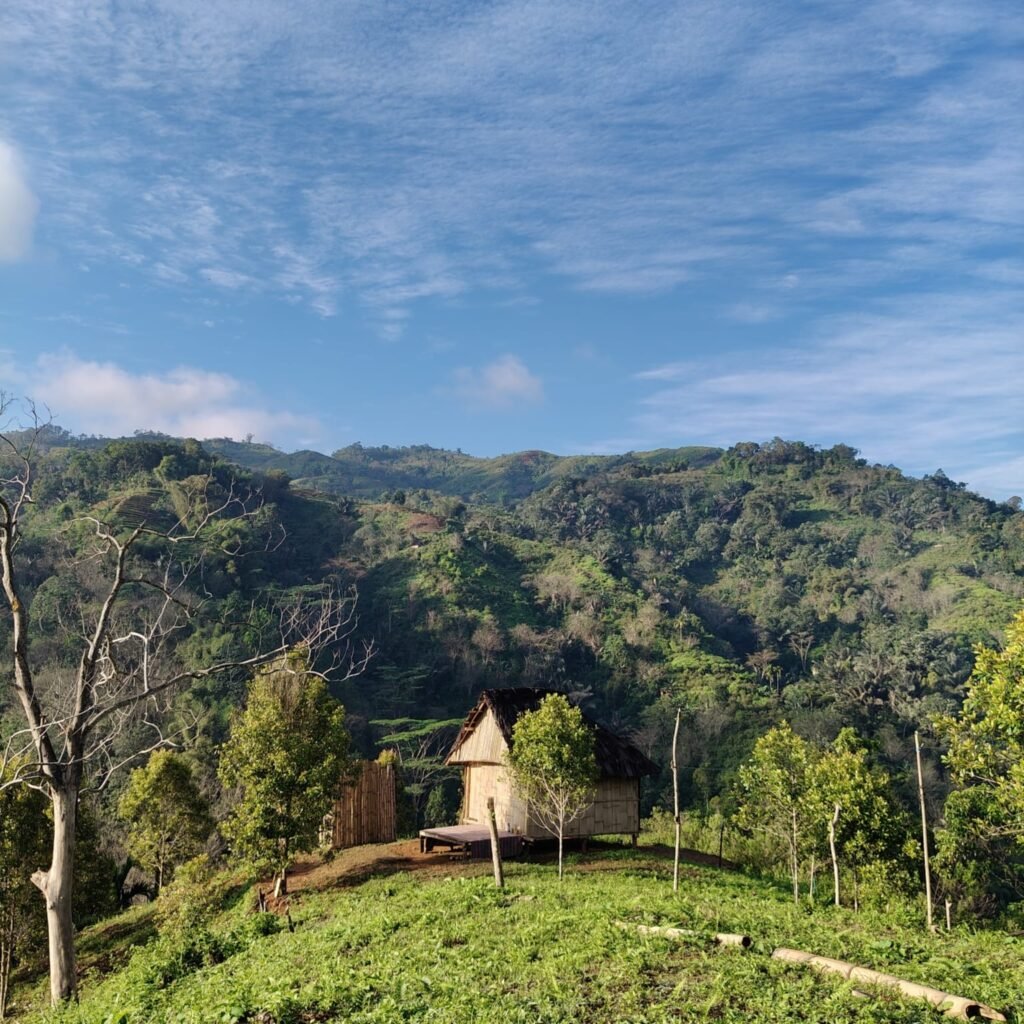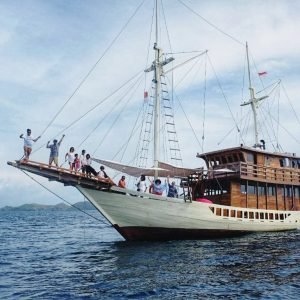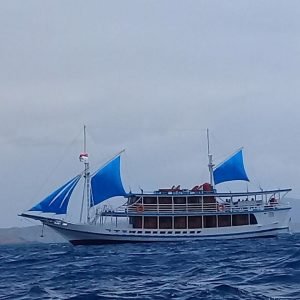Introduction to Labuan Bajo and Flores
Sustainable Tour through Flores with Flores Pristine Tour-Labuan Bajo is a charming fishing town located on the western tip of Flores in East Nusa Tenggara, Indonesia. It serves as the primary gateway to the renowned Komodo National Park, a UNESCO World Heritage Site renowned for its stunning landscapes and unique biodiversity. The town’s picturesque harbor, flanked by dramatic hills and azure waters, offers visitors a glimpse into the enchanting beauty that Flores has to offer. With its lush green hills, pristine beaches, and vibrant marine life, Labuan Bajo has become a focal point for travelers seeking adventure and natural wonders.
Flores itself is an island rich in cultural diversity, home to a myriad of ethnic groups and languages. Each community contributes to the island’s cultural tapestry, showcasing traditional music, dance, and artisanal crafts that embody the spirit of Flores. This cultural richness, when combined with the island’s breathtaking natural beauty, positions Flores as an emerging destination for eco-tourism, which emphasizes the importance of preserving both the environment and local traditions.
The concept of sustainable tourism has gained traction as more visitors to Labuan Bajo and Flores seek to minimize their impact on the environment. Sustainable tourism focuses on practices that help conserve the natural resources and cultural heritage of a place, ensuring that future generations can enjoy the same experiences. Travelers are encouraged to support local businesses, engage with indigenous communities, and participate in conservation initiatives. By fostering a sustainable tourism model, Labuan Bajo can develop a thriving tourism sector, while also protecting its extraordinary environment and cultural identity.
The Rise of Sustainable Tourism in Flores
The concept of sustainable tourism has gained significant traction in recent years, particularly in stunning destinations like Flores. This growth is largely due to increasing awareness among travelers about the environmental and cultural impacts of their journeys. As a result, many are now seeking out eco-friendly experiences that not only allow them to enjoy breathtaking landscapes but also ensure that their activities contribute positively to local communities and ecosystems.
In Flores, sustainable tourism emphasizes responsible travel practices that aim to minimize carbon footprints while maximizing the socio-economic benefits for local residents. Communities are transitioning to eco-friendly initiatives, such as organic farming, marine conservation projects, and the use of renewable energy. This shift not only helps preserve the island’s pristine nature but also provides economic opportunities for local families, empowering them to take charge of their resources. Tourists visiting this region can play a crucial role in promoting sustainability by choosing to support local businesses, participating in conservation efforts, and adhering to guidelines set to protect the environment.
Moreover, various regulations and initiatives have been introduced by both government and non-governmental organizations to foster sustainable tourism practices in Flores. These measures include stricter policies on waste management, limits on tourist numbers in sensitive areas, and the development of eco-lodges that operate on sustainable principles. These initiatives aim to create a balance between the burgeoning tourism sector and the preservation of Flores’ unique cultural heritage and natural beauty. As a visitor to this remarkable destination, engaging with and supporting these efforts facilitates a more meaningful and sustainable travel experience.
Overview of Flores Pristine Tour
Flores Pristine Tour is a travel company dedicated to offering sustainable tourism experiences in the breathtaking landscapes of Labuan Bajo and its surrounding areas. Established with a mission to promote responsible travel, Flores Pristine Tour focuses on connecting travelers with the natural beauty and cultural richness of Flores Island while ensuring that local communities benefit from tourism activities. The company’s vision encompasses the promotion of eco-friendly practices that preserve the environment and enhance the well-being of local populations.
The tours organized by Flores Pristine Tour are designed to provide participants with an immersive experience that highlights the unique flora and fauna of the region. Their itineraries often include visits to the iconic Komodo National Park, known for its remarkable wildlife, particularly the Komodo dragon, as well as opportunities to explore pristine beaches, vibrant coral reefs, and traditional villages. Each tour is carefully crafted to ensure minimal environmental impact, making the preservation of natural habitats a top priority.
A key aspect of Flores Pristine Tour’s approach is community engagement. The company collaborates with local residents and businesses to create authentic experiences that reflect the culture and traditions of the Flores people. Travelers are encouraged to participate in cultural exchanges, such as traditional cooking classes or handicraft workshops, which not only enrich their journey but also support local artisans and promote their livelihood.
Moreover, Flores Pristine Tour facilitates eco-conscious initiatives by raising awareness among tourists about the importance of environmental conservation. They strive to implement responsible practices throughout their tours, including waste reduction and support for sustainable local enterprises. Through these efforts, Flores Pristine Tour exemplifies how tourism can be a force for good, benefiting both visitors and the communities they encounter.
Uma Lantar: A Hub of Traditional Culture
Uma Lantar stands as a testament to the rich cultural tapestry of Flores, offering visitors a unique glimpse into the traditional lifestyle and customs of the local communities. Nestled amidst breathtaking landscapes, this traditional village is not just a destination but an experience that fosters cultural immersion. Travelers arriving in Uma Lantar can engage with the local populace, learning about their vibrant customs and age-old traditions, which are integral to the identity of the Flores culture.
One of the most rewarding aspects of a visit to Uma Lantar is the opportunity to partake in local cuisine tasting. The village is renowned for its authentic culinary offerings, showcasing ingredients sourced from the surrounding forests and waters. Visitors can savor dishes crafted using time-honored recipes that have been passed down through generations. The flavors are not only a delight to the palate but also a representation of local agricultural practices and an infusion of cultural significance, making each meal a story unto itself.
Moreover, interaction with villagers enhances the experience, as travelers can witness traditional crafts and perhaps even participate in artistic workshops. This direct engagement not only enriches the visitor’s understanding of Flores’ cultural heritage but also supports the local community by promoting sustainable tourism practices. By choosing to visit Uma Lantar, travelers directly contribute to the preservation of these traditions, empowering local artisans and fostering economic resilience within the village.
Thus, a tour through Uma Lantar allows for a meaningful connection with the local culture, offering an enriching experience that champions both sustainability and the celebration of Flores’ heritage. This eco-tourism spot embodies the heart of Flores, making it a must-visit for anyone exploring Labuan Bajo.
Wae Rebo Tour: A Journey into Tradition
Wae Rebo is a remarkable village tucked away in the mountains of Flores, Indonesia, renowned for its unique, cone-shaped houses called “Mbaru Niang.” These traditional structures reflect the rich cultural heritage of the Manggarai people. To reach Wae Rebo, visitors embark on an invigorating trek that typically lasts about three to four hours, navigating through lush green valleys and captivating landscapes that resemble natural artwork. The journey itself becomes an experience, allowing trekkers to immerse themselves in the serene beauty of nature.
During the trek, hikers are treated to spectacular views of terraced rice fields, dense forests, and winding rivers, as well as diverse flora and fauna that are indigenous to the region. The path is often accompanied by friendly local guides who share insights about the ecology and the significance of various landmarks along the way. This process not only enhances the trekking experience but also fosters a deeper understanding of the environment surrounding Wae Rebo.
Upon arriving in Wae Rebo, visitors are welcomed by the warm hospitality of the local community. Engaging with the residents offers a profound insight into their way of life, characterized by traditions that have been preserved over generations. The community actively promotes eco-friendly practices, as seen in their approach to sustainable agriculture and waste management. This commitment to environmental stewardship is a cornerstone of community-based tourism, allowing tourists to contribute meaningfully while minimizing their ecological footprint.
Moreover, the villagers celebrate various cultural events throughout the year, including traditional dances and rituals, which further enrich the visitor experience. Such engagements not only deepen the travelers’ appreciation for the cultural identity of the people but also support local traditions in a sustainable manner. A visit to Wae Rebo is not merely a journey into a picturesque village; it is an opportunity to partake in a cultural exchange that emphasizes respect for both heritage and nature.
Snorkeling and Diving Adventures in Komodo National Park
Komodo National Park, an integral part of Indonesia’s rich biodiversity, offers unparalleled opportunities for snorkeling and diving enthusiasts. This UNESCO World Heritage site is not only famous for its iconic Komodo dragons but also for its vibrant underwater ecosystems teeming with life. The warm, crystal-clear waters surrounding the park host some of the most diverse marine life on the planet, making it a premier destination for those looking to explore the ocean’s wonders.
One of the key attractions of snorkeling and diving in Komodo National Park is the stunning coral reefs that flourish within its boundaries. The park boasts over 1,000 species of fish, including colorful reef inhabitants and larger pelagic species. Divers often encounter majestic manta rays, playful dolphins, and even whale sharks gliding gracefully through the water. The sheer diversity of marine life serves as a testament to the ecological significance of this region, highlighting the importance of conservation efforts aimed at preserving its fragile ecosystems.
Responsible tourism is essential when engaging in snorkeling or diving activities in Komodo National Park. Visitors are encouraged to adhere to guidelines set forth by conservation agencies, such as maintaining distance from marine life, avoiding contact with coral, and refraining from littering. These practices not only ensure the safety of marine creatures but also protect coral reefs from damage, allowing future generations to experience their beauty. Engaging with local guides and tour operators like Flores Pristine Tour can enhance your underwater adventure, as they provide insights into sustainable practices and the importance of preserving this unique marine environment.
In conclusion, the snorkeling and diving experiences in Komodo National Park offer not just recreational opportunities but also a chance to contribute to the ongoing conservation of one of the world’s most remarkable marine ecosystems. With proper care and responsible practices, travelers can enjoy the breathtaking beauty of these underwater adventures while supporting the protection of this irreplaceable natural treasure.
Hiking Trails and Natural Wonders around Labuan Bajo
Labuan Bajo, a picturesque harbor town on the island of Flores, serves as a gateway to some of Indonesia’s most stunning natural landscapes. Among the notable attractions, the hiking trails leading to Padar Island and Kelimutu Lakes stand out for their breathtaking vistas and unique geographical features. These trails not only showcase the diverse topography of the region but also offer eco-conscious approaches to exploring these natural wonders, ensuring minimal environmental impact while promoting sustainable tourism.
Padar Island, known for its iconic panoramic views, is accessible via a moderately challenging hike that rewards adventurers with sweeping vistas of the surrounding waters and nearby islands. The trail winds through rugged terrains and lush landscapes, leading to a viewpoint that provides one of the most photographed landscapes in Indonesia. As hikers ascend, they can appreciate the diverse flora and fauna native to the island, while also encountering various sustainable practices employed by local guides to preserve the delicate ecosystem. The use of marked trails minimizes environmental disturbance, enabling visitors to enjoy the beauty of Padar Island without compromising its natural integrity.
In contrast, the Kelimutu Lakes offer a striking juxtaposition of colors that can be best appreciated through hiking. This journey leads visitors to the summit of Mount Kelimutu, where three volcanic lakes exhibit distinct hues that change with the weather and time of year. The short but steep hike invites trekkers to witness the evolutionary volcanic activity, enriched with legends about the lakes’ significance to the local communities. Sustainable practices, such as restricting the number of visitors and promoting guided tours, are integral to preserving the site’s landscape. By adopting these eco-friendly initiatives, the attraction not only highlights its natural beauty but also ensures that future generations can enjoy the enchanting wonders of Flores.
Culinary Delights: Experiencing Flores Cuisine
Flores cuisine is a vibrant reflection of the island’s rich cultural diversity and a treasure trove of flavors waiting to be explored. Central to the culinary traditions of Flores are local ingredients that embrace both sustainable practices and authenticity. The island is abundant in fresh produce, seafood, and spices that form the backbone of traditional dishes, each bearing the mark of age-old recipes passed down through generations.
The use of locally sourced ingredients is paramount in Flores cuisine. Fishermen bring in the freshest catches daily, while farmers cultivate a diverse array of crops, including vegetables, fruits, and herbs. Staple ingredients such as rice, tubers, and beans are foundational, with each region infusing its unique flair into the preparation. For instance, the island is renowned for its “ikan bakar,” or grilled fish, which is often enhanced with locally grown spices, imparting a distinctive flavor that is both wholesome and reflective of the local terroir.
In addition to traditional dishes, Flores cuisine also emphasizes sustainable farming practices that benefit both the environment and the community. Tourists looking to experience this culinary scene can engage in food tours organized by Flores Pristine Tour, which not only introduce them to delicious local fare but also support small-scale farmers and local artisans. These experiences often include visits to local markets, where visitors can partake in cooking classes that highlight the preparation and significance of local dishes.
By embracing Flores cuisine, travelers not only indulge in a gastronomic adventure but also contribute to preserving the island’s cultural heritage and supporting sustainable food practices. This harmonious relationship between dining and community fosters a deeper appreciation for the flavors of Flores, encouraging visitors to interact meaningfully with the local culture.
Conclusion: A Call to Action for Sustainable Travel
As we reflect on the stunning beauty and rich culture of Labuan Bajo and the surrounding Flores region, it becomes increasingly clear that the path to preserving these precious landscapes and communities lies in our hands. Engaging in sustainable travel practices is not merely an option but a necessity for safeguarding our planet’s natural resources and ensuring that future generations can experience the wonders of places like Labuan Bajo.
Throughout this journey, we have explored various aspects of sustainable tourism, emphasizing the need for responsible practices that not only protect the environment but also uplift local communities. When visiting beautiful locations, choices matter—from selecting eco-friendly accommodations to supporting local businesses and adhering to conservation guidelines. As travelers, taking these steps reinforces our commitment to the communities we visit and contributes to the preservation of their natural habitats.
Moreover, traveling sustainably can enhance one’s experience, leading to a deeper connection with the local culture and environment. By participating in community-led tours, engaging with local artisans, and respecting traditional practices, travelers can foster meaningful interactions that promote cultural exchange and understanding. The benefits of sustainable tourism extend well beyond the immediate experience, contributing to long-term ecological and social stability in the region.
As advocates of sustainable travel, it is imperative to inspire conscious decision-making among fellow travelers. Encourage discussions about the importance of sustainability and share your experiences, thereby motivating others to contribute positively to the places they explore. Each small action, when multiplied across the global travel community, can lead to significant change. When planning your next adventure to Labuan Bajo, consider not only the breathtaking sights but also the impact your visit can have. Together, we can ensure a harmonious balance between tourism and environmental stewardship in beautiful Flores.








